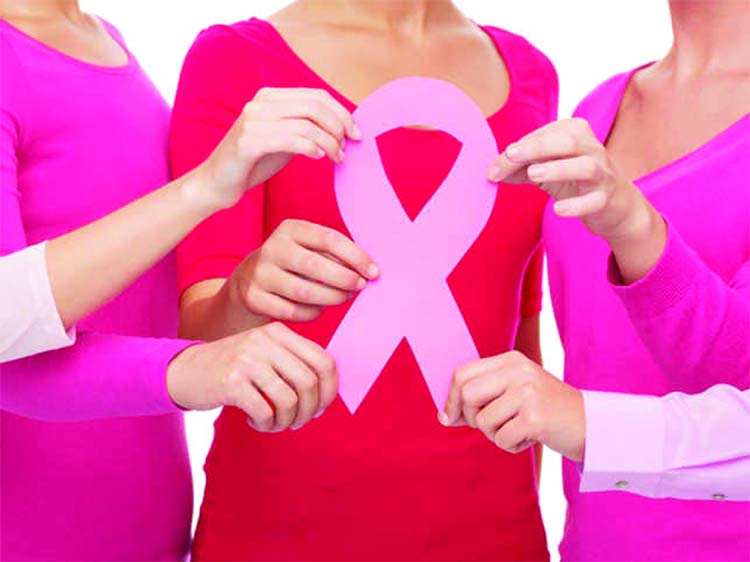
Weekend Plus Desk :
Serena Williams kick started 2018’s Breast Cancer Awareness Month in partnership with ‘I Touch Myself.’ In a short video, the tennis star used her voice to make an impact. While things are still better than what it was in the past, the question that we need to ask ourselves is, ‘Is it enough?’
Recently, in a study published in Menopause, the journal of the North American Menopause Society (NAMS), it has been revealed that obesity and vitamin D deficiency may indicate a greater risk of breast cancer. The study involving more than 600 Brazilian women suggests that vitamin D may reduce cancer risk by inhibiting cell proliferation.
Reproductive risk factors such as early onset of puberty, late menopause, later age at first pregnancy, never having been pregnant, obesity, and a family history have all been shown to be associated with breast cancer development.
The role of vitamin D concentration in the development of breast cancer, however, continues to be debated.
Breast cancer is a disease of malfunctioning genes, that is, the cells inside our body tend to become cancerous because of a flaw in the genes.
There are symptoms such as continuous itching, swelling and nipple discharge. It is often recommended to consult a doctor if these problems persist even after a couple of weeks.
Exercise or staying fit is a great way to lower the risk of breast cancer. Running and bicycling decrease the risk among young women. Even less intense exercises such as walking has been proved to be beneficial.
Serena Williams kick started 2018’s Breast Cancer Awareness Month in partnership with ‘I Touch Myself.’ In a short video, the tennis star used her voice to make an impact. While things are still better than what it was in the past, the question that we need to ask ourselves is, ‘Is it enough?’
Recently, in a study published in Menopause, the journal of the North American Menopause Society (NAMS), it has been revealed that obesity and vitamin D deficiency may indicate a greater risk of breast cancer. The study involving more than 600 Brazilian women suggests that vitamin D may reduce cancer risk by inhibiting cell proliferation.
Reproductive risk factors such as early onset of puberty, late menopause, later age at first pregnancy, never having been pregnant, obesity, and a family history have all been shown to be associated with breast cancer development.
The role of vitamin D concentration in the development of breast cancer, however, continues to be debated.
Breast cancer is a disease of malfunctioning genes, that is, the cells inside our body tend to become cancerous because of a flaw in the genes.
There are symptoms such as continuous itching, swelling and nipple discharge. It is often recommended to consult a doctor if these problems persist even after a couple of weeks.
Exercise or staying fit is a great way to lower the risk of breast cancer. Running and bicycling decrease the risk among young women. Even less intense exercises such as walking has been proved to be beneficial.

